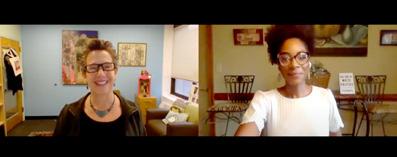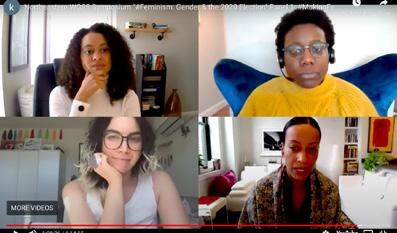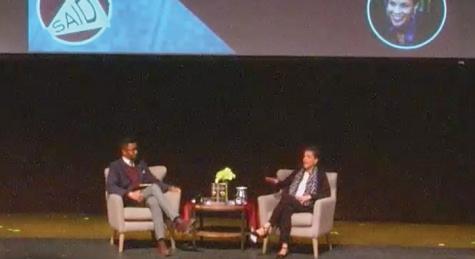
2 minute read
Suzanna Walters: #Feminism: Gender and the 2020 Election
#Feminism: Gender and the 2020 Election
SUZANNA WALTERS
Advertisement
Professor and Director, Women’s Gender and Sexuality Studies (WGSS);
Editor, Signs, College of Social Sciences and Humanities
The seventh annual women’s history month symposium — the signature event for WGSS — this year transitioned with the pandemic pivot to a virtual format and was postponed from spring to October 30, making the topic of feminism and the 2020 election
urgent and immediate. Anxious as everyone was, the symposium was surprisingly hopeful about our ability as feminists to organize and resist; the day left us uplifted by the presence of ever more women involved in multiple ways in electoral politics, by Kamala Harris breaking yet one more glass ceiling, by the convergence of racial justice and feminist justice in contemporary intersectional organizing. Zerlina Maxwell — pundit extraordinaire, TV host, and newly-minted author of The End of White Politics — set the tone in her reflections on changing demographics and the increased power of people of color to determine the outcome of elections. She explained that the demonization of identity politics and the recourse to rightwing cheating — which we have seen shamelessly in the weeks since Biden’s election — is because they no longer have the support or the numbers to win.
The symposium brought together scholars, activists, and policy makers to discuss critical questions around gender, social media, and electoral
politics. Panelists commented that Kamala Harris’s identity as a woman of color was relatively underplayed before the election and expected that post-election, we will be freer to celebrate this milestone. A younger generation of feminist activists advocated for digital community. Feminist mediamaker, Carmen Rios described digital space as a place where otherwise marginalized individuals “can feel what it is like to wield social power,” noting that “radical change can be effected in digital space.” Many of us were impressed not only by the energy and powers of articulation of this rising generation of feminists but by their sophistication about social media and emerging platforms for organizing. The conversations reminded us of how invigorating intergenerational feminist engagement can be, whether we are talking about theory, analysis, or activism. With able technical assistance from Gaby Fiorenza and Kiki Samko’s gracious and competent organizing skills, the symposium was a resounding success. So close to what was arguably the most consequential election in US history, the interest was high, and the stakes heightened. Every speaker seemed to feel the tension of the moment and offered feminist insight and feminist hope for these troubled times. Indeed, the weight of this historical moment brought together the “academic” analyses with the more pragmatically political in a conversation that was simultaneously informative and inspiring.












